CSO wraps year with a repackaged “Messiah” with all the trimmings
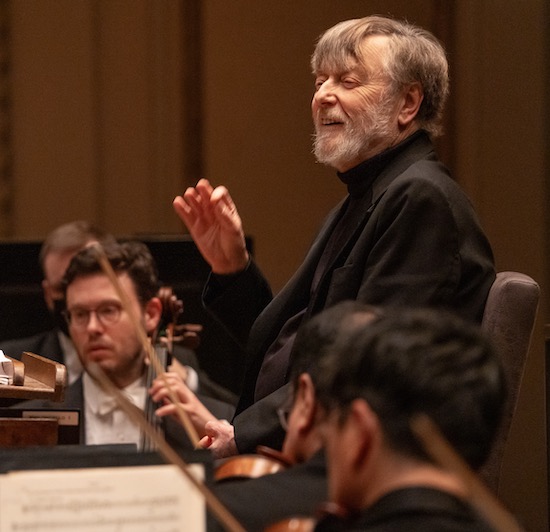
Handel’s Messiah—a mint holiday tradition, a nog of melismas and ornamentation, with its snug blanket of familiarity from the tenor’s fitting first words of “Comfort ye” up through the final “Amen.” Unto us a child is born, standing for the Hallelujah chorus, and—tambourines?
The Chicago Symphony Orchestra presented the U.S. premiere of Sir Andrew Davis’s orchestration of Handel’s Messiah, using forces available to a modern orchestra Thursday evening. In addition to Handel’s orchestra (oboes, bassoons, trumpets, timpani, continuo and strings), Davis adds flutes (piccolo and alto), clarinets (including bass), more alternate winds, French horns, trombones, harp, celesta, and a large percussion battery.
For most of the added instruments, Handel didn’t have the option to use them, because they hadn’t been invented yet. Some of Handel’s instruments also differed from their modern equivalents—the valved trumpet didn’t debut for close to a century after Messiah. Davis imagines how Handel might have illustrated the same musical material today, with modern and modernized instruments.
Plenty of people will call this project presumptuous. Handel’s genius, they claim, inheres in his time and the invention of the music happened simultaneously with the conception of how to orchestrate it. But as Davis observes in his note in the program, there have been several attempts at this already, including by luminaries as bright as Mozart, with varying degrees of success in the eyes of critics and audiences.
His main counterargument is that audiences are not the same today as they were in 1742. Just as Beowulf or The Canterbury Tales are recast into modern English, so Messiah can be “translated” by a new orchestration for our now-different, classical-listening ears. Davis states that he aimed to “underline the mood and meaning of the individual moments.” That is, his goal is to colorize, not to alter anything fundamentally.
For the most part, he succeeds. His use of woodwinds and brass does amplify and heighten the drama and interest of the instrumental music. With familiar question-and-answer techniques thrown into greater relief from, say, having the winds answer the strings instead of strings answering other strings with a slightly different timbre, the band has a broader palette at its disposal. Who wouldn’t want to have the flutes take over as the texture thins out as the angels disperse at the end of “Glory to God”? Who wouldn’t want more brass in the “Hallelujah” chorus, or for the bass drum to supplement the timpani?
One big surprise is Davis completely jettisoning the harpsichord and fully orchestrating the recitatives. These passages now come alive in a way that makes them feel less like transitional material hurrying us along to the arias and more like their own miniature nuggets of music.
Where Davis’s choices intrude are with the percussion section. Some of these insertions work, like the bass drum and a few cymbal crashes. (I loved the glockenspiel playing the sixteenth-note figure, over “Wonderful! Counselor!” in “For Unto Us a Child Is Born.”)
On the other hand, the sleigh bells interpolated into the “King of Kings” moments in “Hallelujah!” did not work at all; nor did the marimba festooning the angry-crowd chorus “He Trusted in God.” And the far-too-present snare drum continually focused one attention on the percussion instead of on the singers.
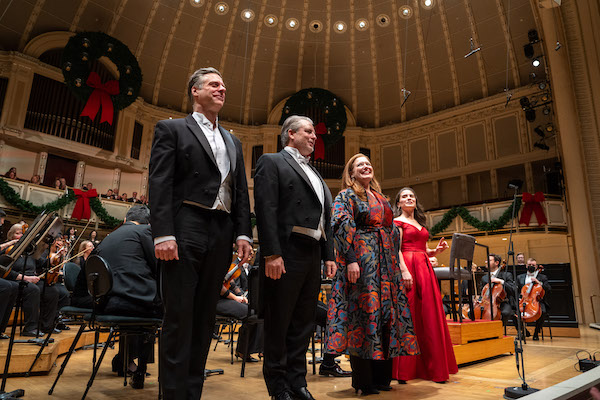
Among the soloists, the standout was the soprano, Joélle Harvey. “I Know That My Redeemer Liveth” is an aria that can really shine when the soprano finds an interiority in it. Harvey found a beautiful emotional expression of faith, drawing every gorgeous corner of the melody out and showing the core behind the text. Davis’s rescoring of the violin obbligato for the clarinet, played by guest musician Jonathan Gunn, underscored the private bedrock faith of the aria.
Matthew Polenzani, a local favorite, was also terrific, offering a powerful high A in the normally thankless aria “Thou Shalt Break Them.” Bass John Relyea offered a rotund sound yet maintained his tempo on the low shakes of the beefed-up recitative “Thus Saith the Lord.” Alto Jennifer Johnson Cano had less vocal presence than the other soloists but delivered a lovely tone, especially on “O Thou That Tellest Good Tidings to Zion.”
The Chicago Symphony Chorus, prepared by James Bass, was sterling throughout its many choruses, clearly well-prepared for the many difficult and fast passages. The melismas were particularly precise in “All We Like Sheep” and “For Unto Us a Child Is Born,” the latter earning immediate and deserved applause. The shaping of phrases also had clearly drawn a lot of attention in rehearsal. The lengths of the notes in the title phrase “All we like sheep” were exact, and the text painting in “Surely He Hath Borne Our Griefs” brought chills.
Davis, who conducted seated for nearly the entire evening, cut the retooled score judiciously to keep the full performance at a tidy two hours and fifteen minutes, including intermission. In addition to the common trims between “The Trumpet Shall Sound” and “Worthy Is the Lamb,” the chorus “Let All the Angels of God,” and the aria “Thou Art Gone Up on High,” Davis axed the chorus “Lift Up Your Heads, O Ye Gates” and the B section and da capo in “He Was Despised.”
Davis’s contribution to Messiah performance may feel like unwelcome fussing around to a work that has endured in its original form for 181 years. But it seems right for this to be a living, breathing tradition and Davis’s revamped Messiah casts new light on this Christmas evergreen, making one listen in a fresh and engaging fashion.
The program will be repeated 1:30 p.m. Friday and 7:30 p.m. Saturday. cso.org
Posted in Performances
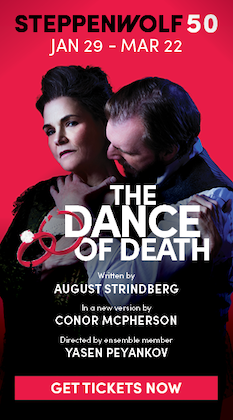

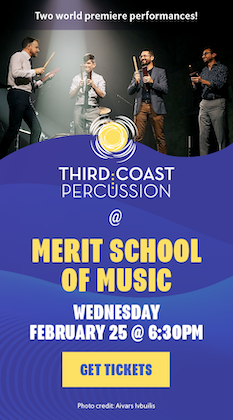
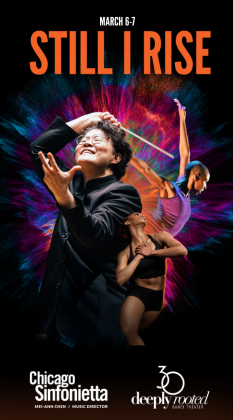
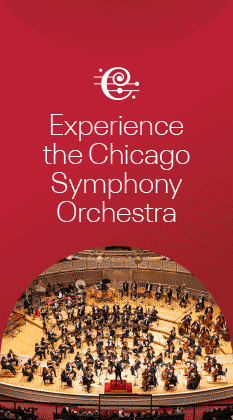
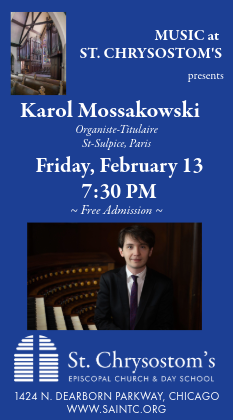
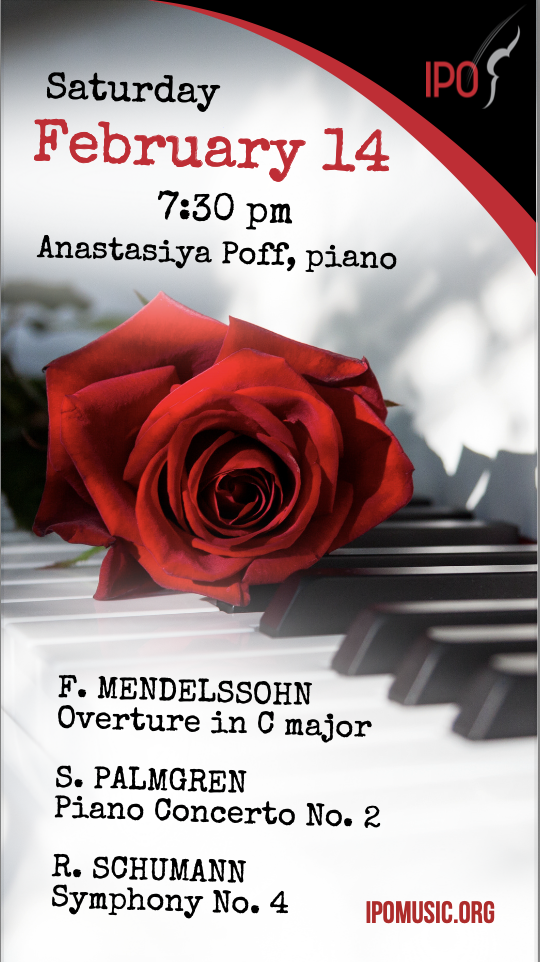
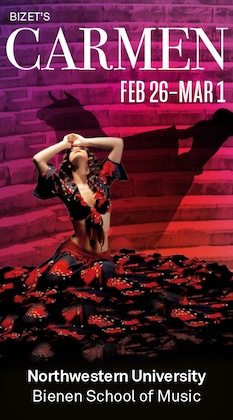
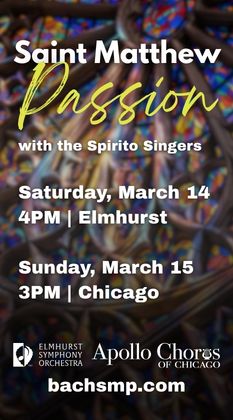
Posted Dec 24, 2023 at 5:39 pm by M. Johnson
The hubris of Davis is unbelievable! He took 10 months to butcher the work which a genius wrote in 24 days. That rightly shows how gifted Davis is. The instruments added all existed (minus valves) in Handel’s time. If he’d wanted to use them he could have.
Increasing the noise level does not improve the work. It makes it impossible for chorus or soloists to sing with any more musicality than a performance of the triumph scene in Aida, although they tried hard. Just a vanity splurge for Davis.
Posted Dec 25, 2023 at 4:47 am by Jonathan
Didn’t appreciate the snare drums, cymbals or xylophone additions, which were distracting and didn’t add anything positive to the performance.
Posted Jan 08, 2024 at 12:53 am by Valerie` Koetting
I found Sir Andrew’s work to be thoughtful and inspiring. His program notes showed him carefully working with the text, which is what drives–and should drive–the entire work. I agreed the snare and bass drums were distracting, and I totally missed the sleigh bells (caught up in the moment!), but all other additions/changes worked for me. The only change I would have suggested would be the addition of organ in “Since By Man Came Death”–I felt there needed to be some sustaining sound in the accompaniment.
There were many, many musicians in this audience–I could see them all around me–mouthing the words, fingering their parts, etc. If they–as I–could break into spontaneous applause after hearing and performing this brilliant piece umpteen times in their lives, I say Sir Andrew definitely got something right. Bravo!